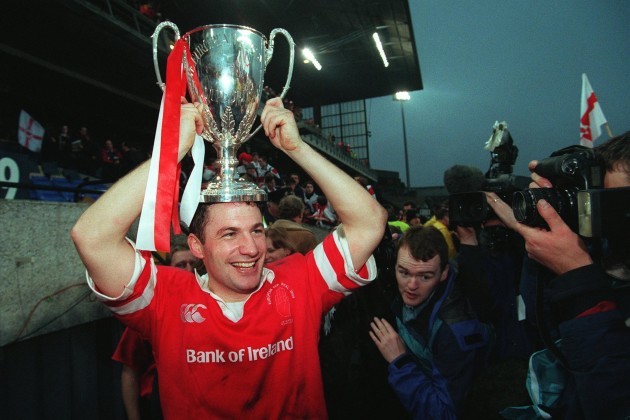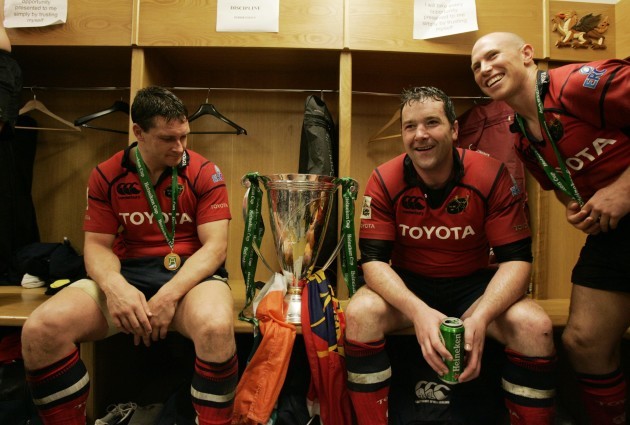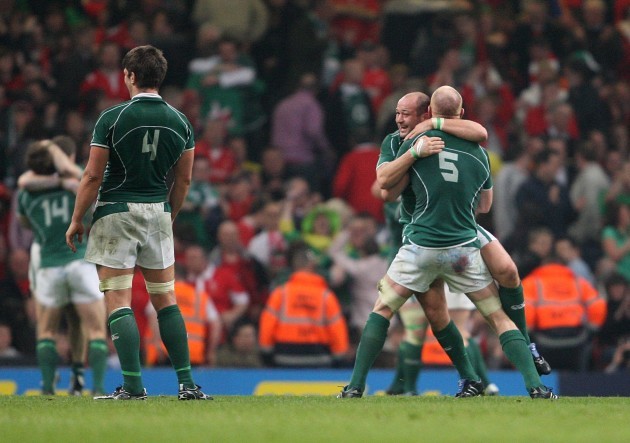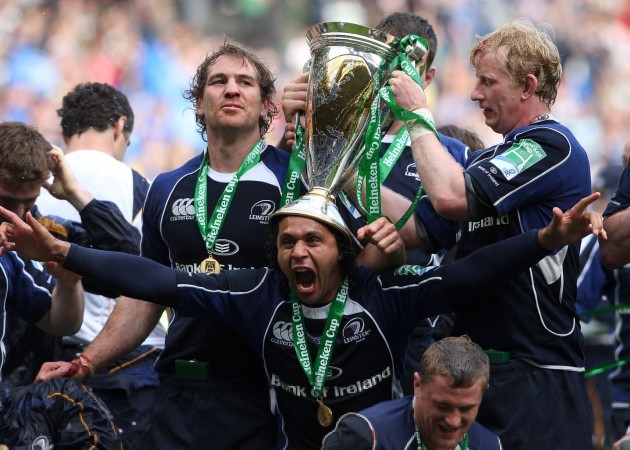THE REDRAWING OF the European club accord and the new (yet very familiar Dutch beer-sponsored) Champions Cup tournament has brought, as expected, benefits to the more powerful English and French clubs.
Since the all-Irish final in 2012, three European crowns have gone to France (all Toulon) with perennial English challengers Saracens finally getting over the line last year.
In the same time-frame though, Ireland have won two Six Nations titles while boasting only three semi-finalists in the four years of European rugby.
England’s national team has improved steadily (excluding their shambolic World Cup) France have been in a turgid decline. Is there some connection that the Chariot has managed to run roughshod over?
If so, there may be cause for concern in the Six Nations next month as Ireland’s provinces have been back challenging among Europe’s elite – thanks in part to the swell of confidence from November, admittedly.
Standards
Take 2015 for starters, Ireland won a second straight Six Nations title in some style, putting up a points difference too steep for England to match in a thrilling Twickenham shoot-out against France.
A few weeks later, with Munster and Ulster having already failed to come through strong pools, Leinster were the last Irish representatives in Europe and struggled to create more than penalty chances at home to Bath. The semi-final away to Toulon was another less than memorable affair ending 12 – 12 before Bryan Habana and Leigh Halfpenny made the difference for the eventual champions.
A decent cup run for Leinster. But for Irish provinces as a whole, it fell some way below the standards we’ve come to expect.
Go right back to the pre-Six Nations era too, when Ulster put a Heineken Cup to their name in the same year as Ireland hit a low ebb, tumbling out of the World Cup to Argentina (a far more familiar fate now than it was in the 20th century).
On the other hand: this century and the modern version of professional rugby on these shores was jump-started by Munster beginning a quest for glory that featured a run of Final, semi-final, Final, semi-final, quarter-final before that momentous day under the Millennium Stadium roof in 2006.
Their relentless knocking at the door coincided with Ireland’s rise at Test level.
The foot and mouth Six Nations of 2001 was a Murrayfield nightmare away from being a Grand Slam. In 2003 we pushed that year’s world champions England to a decider in Lansdowne Road. 2004 saw a return to Triple Crown-winning form and by the time Anthony Foley lifted the European title in May of 2006, the nation had grown hungry for outright titles with Triple Crowns viewed by many as a dressed-up runners-up prize.
There are undoubtedly benefits to the cohesion and collective form fused together by provincial stars brought under one roof, yet at times it has seemed as though players have almost welcomed the chance to retreat away from a struggling national team and regroup – “circle the wagons” as Eddie O’Sullivan might say – to bite back. Like in the 2007 -08 season, after Ireland’s dreadful World Cup, when Munster looked thoroughly comfortable as the kings of Europe after a Six Nations which yielded just two wins and ended O’Sullivan’s tenure. Perhaps Rob Kearney saw some of that when he challenged the southern representatives in Enfield to care as much about playing for Ireland as they do about Munster.
That bold head-above the-parapet moment from the young Kearney helped pave the way for the dream scenario; 2009, the one occasion when stars have aligned to bring both the Six Nations and the European Cup to these shores.
Since then, it almost feels like we ought to take note of Wales’ ability to band together and form a Grand Slam team every few years while their clubs struggle to make a dent in Europe. Maybe we must choose one or the other?
When you look back at 18 years of tournament results it’s tough to argue that Ireland have not boxed well above their weight class in club competition. The delayed acclimatisation to professionalism has brought ever-improving standards.
And while the graph of finals and semi-final representation in the Heineken and Champions Cup has levelled off in recent years, that’s more attributable to the swelling budgets and southern hemisphere accents in the Top 14 and Premiership than merely a refocusing to aid the national team.
It may not always run according to plan in a single season, but for Irish teams the benefits of the competitions are symbiotic.
Ulster and Munster led the way in Europe, and the leap at Test level followed soon after. First, under O’Sullivan’s mostly-Munster front 10, and then to the very pinnacle of European rugby, Declan Kidney’s Grand Slam — once Michael Cheika had succeeded in hardening up Leinster’s edges.
Both province and national team have taken it in turns to push standards up for the other to keep pace with. Success at both levels of the game within a matter of two months remains rare, but over a longer time-frame success and quality trickles down from one to the other.
The42 is on Instagram! Tap the button below on your phone to follow us!




